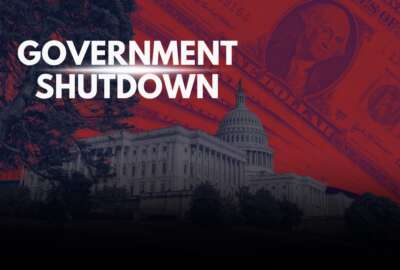The Smartest Fed Investors Work For…
So who are the smartest TSP investors in government? Are they rocket scientists, economist, medical researchers or postal employees? Take Senior Correspondent Mike...
Do you like taking multiple-choice quiz tests on Fridays?
Of course not.
Neither do I. I mean we have a life, right? And it’s TGIF day. But forget that. Take this one. Trust me.
You will be able to amaze your friends and coworkers, and maybe learn a little something about making money. The question de jour is:
When it comes to Thrift Savings Plan investors which group or occupation appears to be the smartest, as in getting the biggest bang for their investment buck. (Hint: the same group also seems to be most successful at doubling their investment dollars.) Is it:
- Rocket scientists at the National Aeronautics and Space Administration
- Everybody at the Defense Advanced Research Projects Agency
- Physicists at the White Sands National Laboratory
- Letter carriers with the U.S. Postal Service
- Statisticians with the Bureau of Labor Statistics
- Chaplains with the Bureau of Prisons
- Senior researchers with the National Institutes of Health
- Auditors at the Internal Revenue Service
- All of the above
- None of the above.
The correct answer is that it appears to be D) USPS letter carriers. The men and women who deliver your mail.
So what do they know, what do they do, that makes them so special? So smart?
They take advantage of free money. They take it, an amount equal to 5 percent of their biweekly pay, and they invest it in the TSP. So if they invest 5 percent of their own, they also use the 5 percent match available from Uncle Sam, thereby investing 10 percent each pay period. Those who max out at 10 percent actually put in a total of 15 percent each time they invest.
Approximately 95 percent of all postal letter carrier investors are taking advantage of the full 5 percent match from the government by investing at least 5 percent of their own salary.
TSP experts credit the National Association of Letter Carriers union with an educational program which has shown members (and most letter carriers are union members) what a superb deal the 5 percent government match is. Many federal unions encourage members to participate in the TSP. And to get the most out of it. And many get the message.
The Federal Retirement Thrift Investment Board, which runs the TSP, can and does gives advice on how the federal 401(k) plan works. But it can’t (by law) give the kind of what-are-you-nuts? emphasis that unions can and do for their members.
“Anybody who doesn’t take advantage of the 5 percent agency match is leaving money on the table. It’s that simple,” said a TSP official. For more on that listen to Wednesday’s Your Turn with Mike Causey radio show which included Tom Trabucco of the FRTIB.
Many if not most private sector 401(k) plans don’t offer employees any match. Some who did stopped doing it over the past few years. Of those that do a 3 percent match is considered very good.
Yet despite the generous government match, which can double the amount you invest, hundreds of thousands of federal workers aren’t taking advantage. They are not investing 5 percent themselves in order to qualify for the full 5 percent government match. Some aren’t investing anything, so they get only the 1 percent basic match that goes to all FERS employees.
At the end of 2009 there were 421,000 FERS employees who were getting only the 1 percent agency automatic contribution. After the TSP implemented the immediate employer contribution (eliminating the 6 to 12 month waiting period), and a TSP educational campaign, the number of non-investors dropped to 402,000 this year. That’s still too many people who are leaving money on the table, but things are getting better.
So, you want investment advice? Talk to the man or woman who delivers your mail.
LATE BREAKING Pay Freeze Update
A move in the Senate to freeze federal pay raises and bonuses for FY 2011 was voted down late yesterday. For more on that, click here.
To reach me: mcausey@federalnewsradio.com
Nearly Useless Factoid
by Suzanne Kubota
“More than half of today’s CIA employees joined the agency in just the past nine years.” (AP)
ADDITIONAL PAY AND BENEFITS NEWS ON FEDERAL NEWS RADIO
Friday Morning Federal Newscast
Among the headlines this morning: Federal pay freeze proposal defeated, Critical tests to decide future of SBINet, Can Denver land a regional U.S. Patent Office? Learn more from the Morning Federal Newscast by clicking here.
OPM wants to settle the fed salary debate
Office of Personnel Management director John Berry wants to once and for all settle the question of whether federal employees are overpaid compared to the private sector. He says the flood of recent news stories shows that there is no standard way to compare the public and private sectors. So, Berry has requested some help. Read more here.
ALSO ON FEDERAL NEWS RADIO
Google Apps could help agencies move to the cloud
When you think of Google, you probably think of the search engine, but the company is actually making a big push to move applications like work processing, e-mail and spread sheets into the cloud. The service is called Google Apps, and it is one of many offerings that could change the way the federal government does business. David Gerard is the president of Google’s enterprise division and says cloud is important because, in his opinion, it is one of the biggest technology changes to ever take place. Read more here.
Enterprises need to be proactive in cyber war
Cyber criminals are becoming more advanced and agile, and it’s getting increasingly difficult to stay ahead of the curve. Marc Maiffret is the chief security architect for FireEye, a malware protection company. He says that the combination of cyber crime and cyber espionage is packing a one-two punch for enterprise organizations. Read more here.
Dorobek Must Reads – June 17
Worried you’ll have no idea what people are talking about around the watercooler this morning? Each day, the DorobekInsider team collects a group of stories that we’re reading to stay in the know. Read more here.
Copyright © 2024 Federal News Network. All rights reserved. This website is not intended for users located within the European Economic Area.





